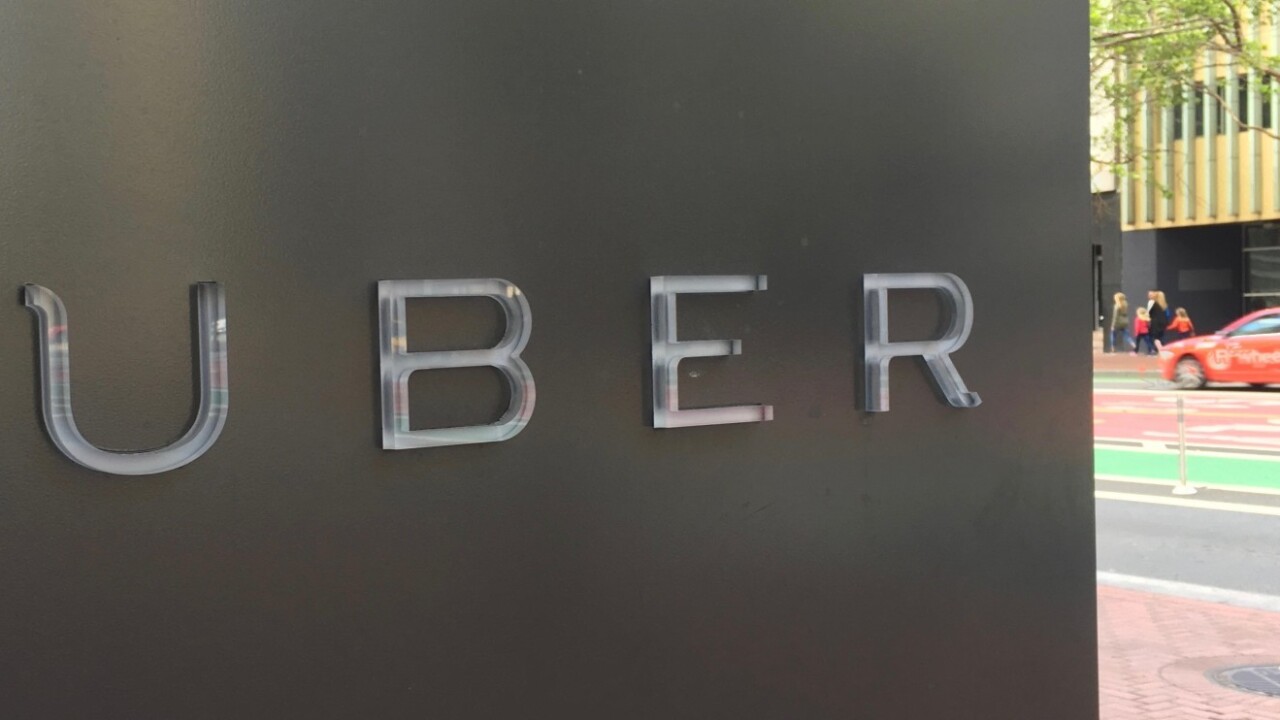
Uber has said it has no plans to reclassify its vast army of drivers as employees, in light of the the gig workers’ rights bill passed in the California Senate yesterday.
“We continue to believe drivers are properly classified as independent, and because we’ll continue to be responsive to what the vast majority of drivers tell us they want most — flexibility — drivers will not be automatically reclassified as employees, even after January of next year,” the company said in a statement.
The state’s Assembly Bill 5 (AB5) is expected to disrupt the gig economy as we know it, and will ensure drivers and delivery people working at companies like Uber, Lyft, and DoorDash are entitled to minimum wage, workers’ compensation, and other benefits.
Uber, instead, is pushing for a proposal of its own that would guarantee independent contractors an hourly earnings rate of $21 while giving the flexibility to “work whenever, wherever and for whomever they choose,” offer benefits like sick leave and injury protection, and give drivers a say in decisions that could affect their livelihoods.
Insisting that its framework avoids forcing drivers to be employees, the ridesharing giant said AB5 doesn’t automatically reclassify its drivers from independent contractors to employees.
“AB5 does not provide drivers with benefits, nor does it give drivers the right to organize. In fact, the bill currently says nothing about rideshare drivers,” said Tony West, Uber’s chief legal officer. “What AB5 does do is fairly straightforward: it inserts into the California labor code a new legal test that must be used when determining whether a worker is classified as an independent contractor or an employee.”
West’s argument that AB5 doesn’t turn every driver into an employee is correct, as the bill merely ensures gig economy workers are eligible for benefits by applying the so-called ABC test.
According to the test, in order to determine if someone is an independent contractor, it must be able to prove that — (A) the worker is free from the control and direction of the hiring entity (e.g. Uber), (B) does work outside the usual course of the company’s business, and (C) is engaged in an “independently established trade, occupation, or business of the same nature as the work performed.”
We are not exempt from AB5, and we’re not arguing that we are. AB5 has no requirement to reclassify any drivers from independent contractors to employees. The full context here: https://t.co/BXQ7vEhrkR
— Uber Comms (@Uber_Comms) September 11, 2019
In other words, the contractor must be self-employed and be in the business for themselves. West said that Uber could pass the ABC test, citing previous rulings that have found “drivers’ work is outside the usual course of Uber’s business.”
But it remains to be seen if that would still be the case, given the fact that driving people around in cars is indeed a crucial part of its business.
If the company does fail the test — meaning its drivers are not contractors — it may have to impose fresh restrictions, preventing drivers from working for other rideshare companies.
Although Uber is open to a compromise, it’s also pursuing a number of other legal and political options to reverse AB5 — including funding a statewide ballot initiative in 2020 in partnership with Lyft and other gig economy marketplaces, which aims to give drivers access to benefits and a minimum wage while keeping the flexibility of their on-demand work intact.
Uber — and other players like Lyft, DoorDash, Instacart, and Postmates — have long argued that they’re just technology platforms. But it goes without saying they would be greatly impacted by the new rules when it’s signed into law.
The move will also have other trickle-down effects, as the companies’ operation costs are likely to go up further.
Lyft, for its part, has already begun sending emails to drivers, hinting that they “may soon be required to drive specific shifts, stick to specific areas, and drive for only a single platform (such as Lyft, Uber, Doordash, or others).”
By classifying drivers as independent contractors instead of employees, companies like Uber haven’t had the need to pay benefits, overtime, or minimum wages to tens of thousands of drivers. As independent contractors, they also don’t have a legal right to form labor unions or negotiate contracts.
AB5 aims to change the whole model, thereby putting more financial pressure on the companies that are so far struggling to turn profitable.
“At Uber we embrace the challenge to improve work for drivers,” Uber said. “But we will continue to defend our ability to enable on-demand, independent work.”
Updated on Sept. 13, 2019 11:00 AM IST: Uber has been sued by a driver after the company said it doesn’t intend to classify its drivers as employees. “This ongoing defiance of the law constitutes a willful violation of California law,” the complaint read.
Get the TNW newsletter
Get the most important tech news in your inbox each week.





